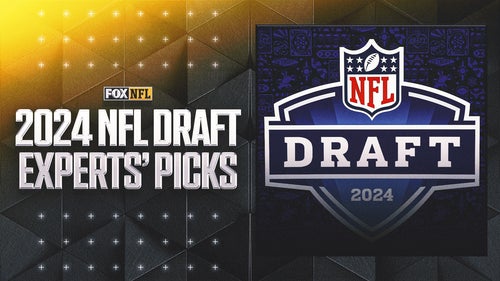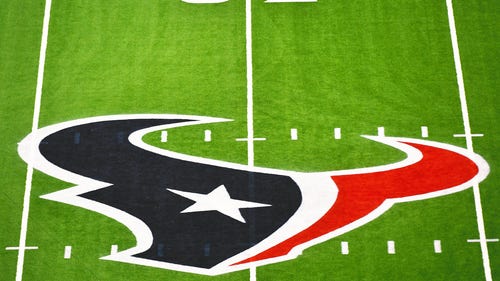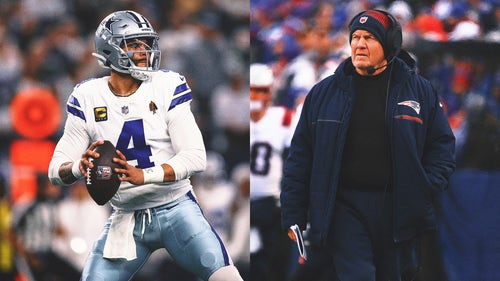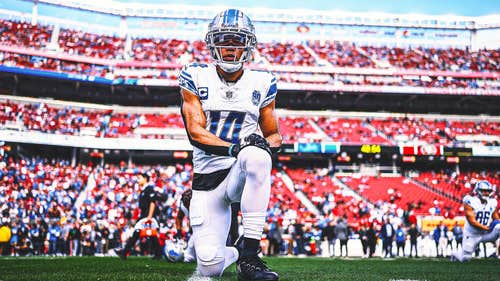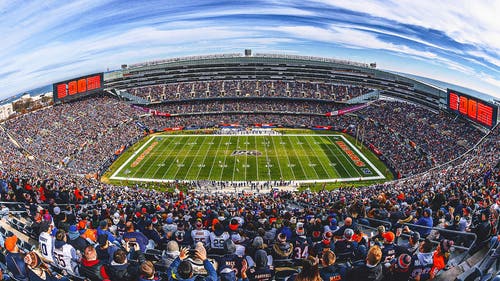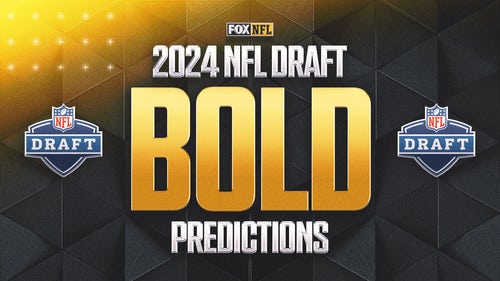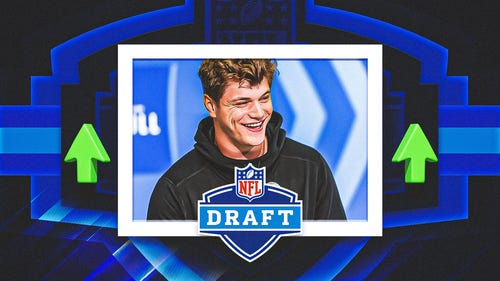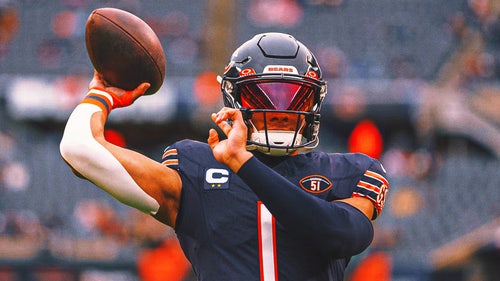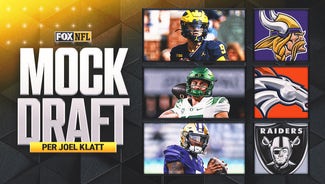
Is 30-year-old Sean McVay too young to become a head coach?

Sean McVay, the 30-year-old wunderkind Redskins offensive coordinator, who turned Kirk Cousins into a nine-figure quarterback, coached a unit that finished third in the NFL yet couldn't score more points than a Giants team that wasn't trying in Washington's must-win Week 17 game, has come out of nowhere to become one of the hot head coaching candidates of the offseason, turning from a guy dipping his toes into the interview process to a legitimate contender in the course of a few days. Mike Silver says sources told him McVay "crushed" his interviews in Los Angeles and San Francisco. If hired, McVay, who's been the 'Skins coordinator for three years, would be the youngest head coach in the history of the NFL. But all of it begs the question, how young to too young to become a head coach?
The youngest current coach in the NFL is Miami's Adam Gase, who will turn 39 before the start of next season. McVay will be 31 when the 2017 kicks off. In the past 30 years, only nine coaches were hired before turning 36 years old (listed youngest to oldest):
1. Lane Kiffin, 31, Oakland (2007)
2. Raheem Morris, 32, Tampa Bay (2009)
3. Dave Shula, 32, Cincinnati (1992)

4. Josh McDaniels 32, Denver (2009)
5. Jon Gruden, 34, Oakland (1998)
6. Bill Cowher 34, Pittsburgh (1992)
7. Mike Tomlin 34, Oakland (2007)
8. Eric Mangini 34, Cleveland (2006)
9. Mike Shanahan 35, Los Angeles Raiders (1988)
How do they compare? Depends on what you look at. The youngest four on that list lasted a paltry average of 2.61 years as head coaches, were fired and haven't had another NFL head coaching job (yet -- McDaniels should get something soon). Four of the next five guys won Super Bowls (Man-genius excepted), were at their first gigs an average of 7.56 years and served as head coaches for an average total of 13.81 years. (The active Tomlin adds to the last two numbers with every regular-season game.)

Maybe it's experience? The older guys have another two years under the belt on the sideline and that gives them an advantage? Not exactly.
The average NFL coaching experience of the youngest four "failures" before they were elevated to head coach was 6.5 years. The average NFL coaching experience of the older four champions was less than that: 6.25 years. Interesting, yes?
Maybe it changes when you add college or other professional coaching into the mix. Nope! In terms of non-head-coaching experience at both the college and pro levels, the youngest youngsters had fewer than a season less experience than Gruden/Cowher/Tomlin/Shanahan. (Cowher did play six years in the NFL, however.) The takeaway: With the same experience, you can't add any weight to the two years the championship coaches had on the flame-outs (though there should be an asterisk for Cowher and Tomlin, who were handpicked by the Rooney family, which has only hired three coaches in the last 47 years). Aaliyah was right: Age ain't nothin but a number.

Numbers can tell other stories, too. The average job stint of the youngest four head coaches was 2.61 years, with three fired in the middle of the season. (That number is skewed higher by Shula's 4.5 years in Cincy, owing to the cheapness of the team more than anything.) The average job stint of the successes at their first gig was 121 games. (Also, Gruden was traded from Oakland to Tampa after four seasons -- not quite a firing). Overall, those coaches have an average of 221 games on the NFL sideline. The numbers say being super-young is harmful and being slightly-less-young is better.
But can an age difference of two years be that important? No way. Making a correlation between failing at 32 and succeeding 34 is specious conjecture. A few flips of the calendar is that big a deal? Men of 34 are more mature than men at 32? Not from my personal experience, as my wife might tell you.
What does that all mean for McVay? Should teams want him? Should he want to leave?
It's a question that has nothing to do with age. If McVay is as good an interview as has been reported and is wowing clubs now, why would he accept any offer from Buffalo, Los Angeles, San Diego or San Francisco -- four of the most unstable franchises in the NFL? Buffalo has nothing to offer an offensive coach, Los Angeles has Jared Goff and a ownership group content with 7-9 seasons, San Diego could be playing next season in Des Moines for all we know, and the Niners are so dysfunctional they make the Browns seem like a model of stability. Only Denver should pique his interest. The offense doesn't have much to speak of right now, but with a solid owner and front office, plus that defense, it's easily the most attractive gig. The biggest problem those four youngest coaches made was going to a bad situation. Mike Tomlin replaced Bill Cowher who replaced Chuck Noll. That's not to say what they've done is easy, but it certainly gives them a leg up on someone who was in Cincinnati in 1992.

Waiting has its drawbacks for McVay, too. Eighty percent of all coaching vacancies come open when a team is floundering. It's not like you can pick and choose your spots. Situations like Denver this year, the Giants last year and the Falcons the year before have a bigger upside thanks to stable franchises that see coaches either resign or be let go because ownership thinks they've gone as far as they're going to go. San Diego could be in that group (the team's 5-11 record could easily have been 9-7), but the uncertainty about the direction (figuratively and literally) of the franchise plus Philip Rivers' age (35) should give a young coach pause.
There's also something to be said for striking when the iron is hot. One year from today, McVay might be coming off a season in which his offense, with its new high-priced quarterback, was a flop. DeSean Jackson and Pierre Garcon might not be back and Jordan Reed can't stay on the field -- it's not a stretch to see a 5-11 Redskins team by any means (it's more likely than 11-5). His stock might not be as high, and there's a chance he won't get another opportunity for, say, a half-decade or more. Guys like Pat Shurmur, Steve Spagnuolo and Gregg Williams haven't gotten another shot after taking the wrong jobs. (McDaniels hasn't either but won't have to wait too much longer for his chance to have a second act, like Belichick or Pete Carroll). Then there are the coaches such as Russ Grimm, Kirk Ferentz, Charlie Weis and others who were hot candidates for years and, for whatever reason, never got a shot to coach in the NFL. But if McVay is confident enough in his abilities to take a head coaching job with his experience (and he's has never been accused of lacking swagger) then he's confident enough to wait until he thinks he's ready.

Kiffin didn't flame out because he was 31, he flamed out because he's proven to be someone who firebombs bridges, as evidenced by getting fired by Nick Saban one week before what was to be a record-setting national championship for Alabama. Morris was never a coordinator on the pro level (and was for only one year in college for a middling Kansas State team). Dave Shula = nepotizzzzz. And McDaniels has admitted he was immature in his 28 games as head coach of the Broncos. ("I made a lot of mistakes there," he said. "But I think it was a great learning experience for myself, and hopefully I’ve grown from that and will continue to grow from that." The biggest thing was that he wasn't a good listener. Ahh, the hubris of youth.)
Sean McVay could stand to learn from those examples. It's not that he's not ready to be an NFL head coach. He just might be more ready down the road and with a team built for success.






































































































































